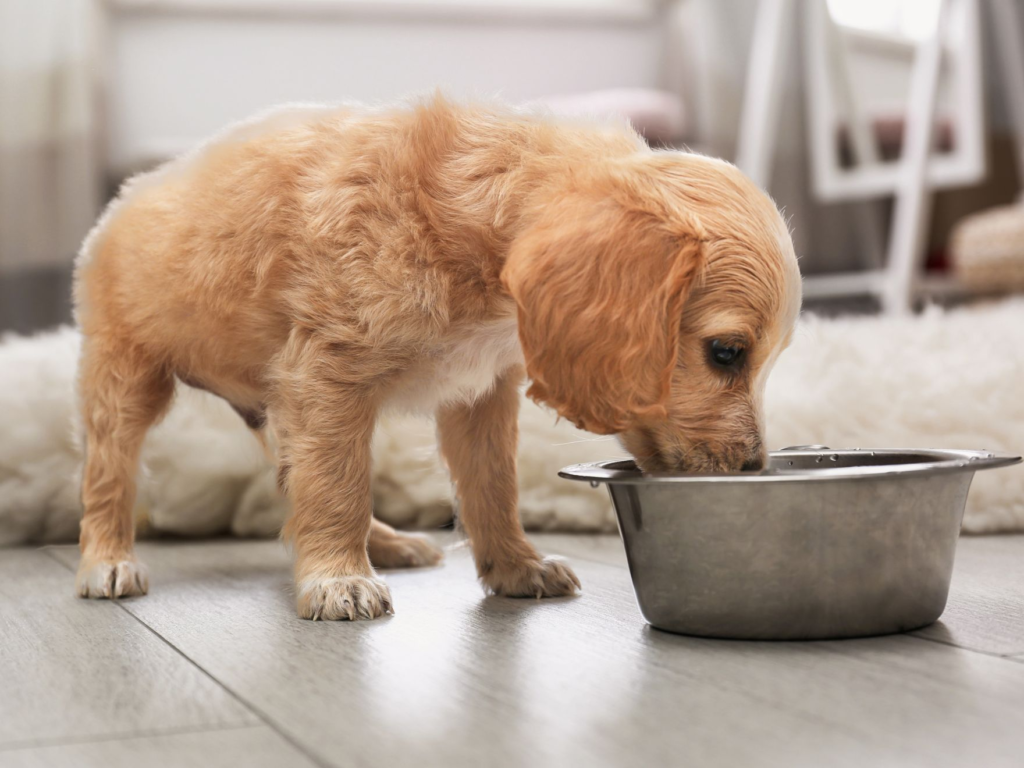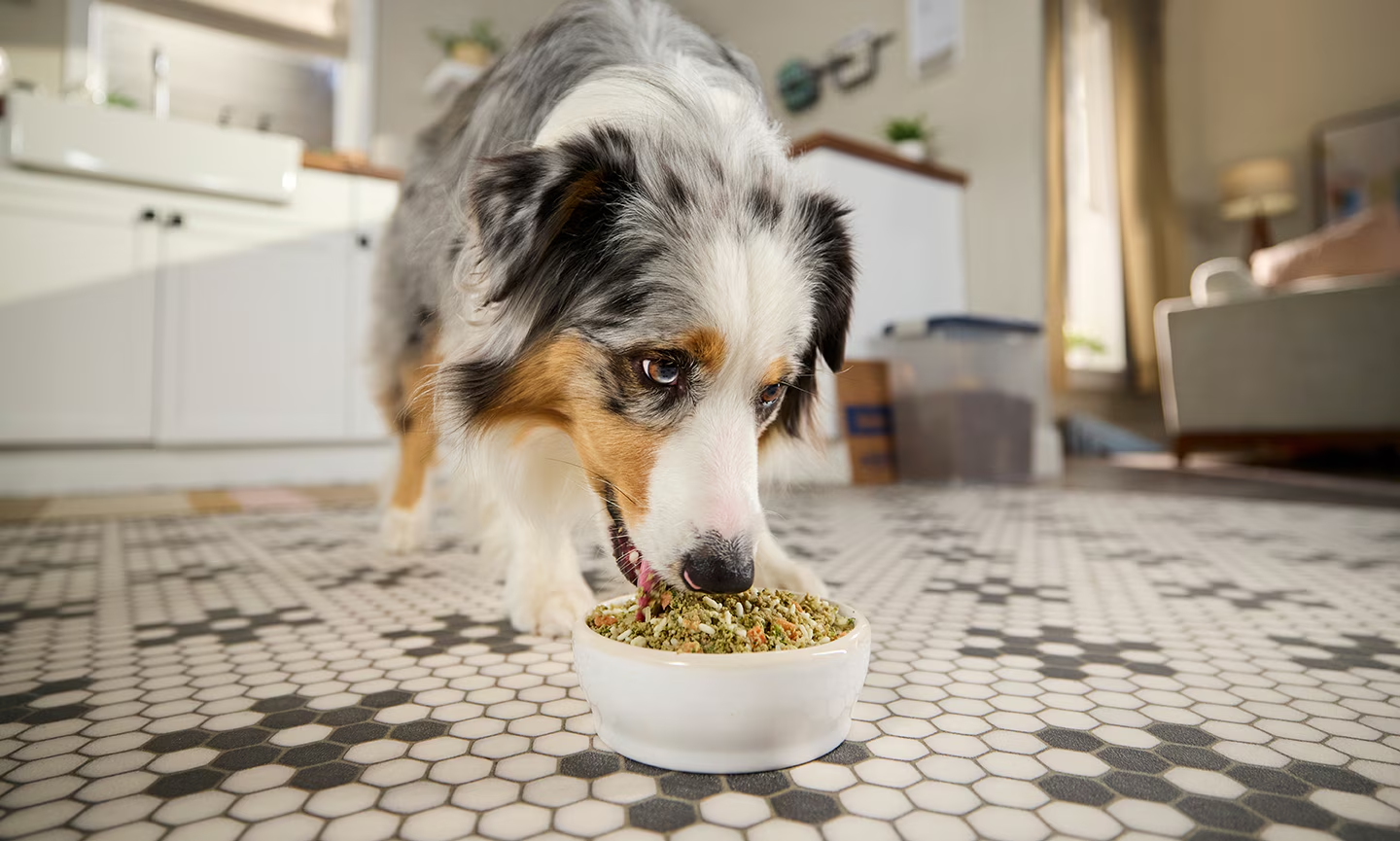The Best Diet for Dogs: What Should You Feed Them?


As pet owners, ensuring that our dogs and cats receive the proper nutrition is crucial for their long-term health and well-being. As pet parents, we want our furry companions to stay healthy, active, and happy. One of the most critical factors in achieving this is providing them with a balanced and nutritious diet. Both dogs and cats have different dietary needs, and choosing the best food for them can often be confusing with so many options available in the market. A well-balanced diet is crucial for maintaining your dog’s health, energy levels, and longevity. But with so many food options available- dry kibble, wet food, raw diets, homemade meals, and more- it can be overwhelming to figure out what’s best for your dog.
In this blog, we’ll explore the essential components of a healthy dog diet, how to choose the right food for your dog’s age, breed, and health condition.
1. The Basics of a Balanced Dog Diet
Proteins: Proteins should be the primary ingredient in your dog’s food for muscle growth and repair. High-quality sources of protein include chicken, lamb, and fish.
Carbohydrates: While dogs are primarily carnivores, they can benefit from digestible carbohydrates like sweet potatoes, peas, and brown rice. Carbs provide energy and fiber for digestive health.
Vitamins & Minerals: These are essential for immune function, bone health, and overall well-being.
Fats: Healthy fats provide energy, support cell function, and help with the absorption of certain vitamins.
Water: This is often overlooked but extremely important. Dogs need access to fresh water at all times to stay hydrated.
2. Choosing the Right Dog Food
- Dry Dog Food (Kibble): Dry dog food is one of the most common and convenient options. Its cost-effective, has a long shelf life, and helps keep your dog’s teeth clean due to its crunchy texture. High quality kibble is made with real meat, vegetables, and whole grains.
- Wet Dog Food (Canned): Wet food often has a higher moisture content and can be a good choice for dogs who need extra hydration or have trouble chewing dry kibble. It tends to be more flavorful, which can entice picky eaters.
- Homemade Dog Food: Some owners choose to cook for their dogs, preparing meals with fresh ingredients like chicken, rice, vegetables, and sweet potatoes. This option ensures you know exactly what your dog is eating.
- Raw Diet: The raw diet, also known as the Biologically Appropriate Raw Food (BARF) diet, involves feeding your dog raw meat, bones, and vegetables.
3. Special Diets for Specific Health Concerns
- Puppies- Puppies are growing fast and need a diet that supports their development. Look for puppy food that is rich in protein and fat to promote healthy growth. Puppy foods are typically more calorie-dense than adult dog foods to fuel their energy needs.
- Senior Dogs- As dogs age, they may require a diet that is lower in calories but higher in fiber to support digestion and weight management.
- Dogs with Food Allergies- Some dogs suffer from food allergies or sensitivities, which may require a specialized diet. Common allergens include grains, chicken.
- Dogs with Digestive Issues- If your dog has digestive problems, look for foods that are easy on the stomach, such as those containing easily digestible proteins and fewer ingredients. Some foods also include probiotics to support gut health.
- Overweight Dogs- If your dog is overweight, consider a weight-management formula that is lower in fat but still provides adequate nutrition. These diets often contain more fiber to help your dog feel full while reducing overall calorie intake.
4. How Much Should You Feed Your Dog?
The amount of food your dog needs depends on its size, age, activity level, and metabolism. Most dog food packaging provides feeding guidelines based on your dog’s weight. However, it’s always a good idea to consult with your veterinarian to tailor the amount and type of food for your dog’s specific needs.
5. Foods to Avoid Feeding Your Dog
- Chocolate
- Onion and garlic
- Cooked bones
- Grapes and raisins
- Alcohol
- Xylitol (a sugar substitute)

Final Thought
In conclusion, the best diet for your dog should be balanced, nutritionally complete, and tailored to their specific needs based on age, breed, activity level, and health conditions. For dogs with specific dietary needs, such as food allergies, consult with a veterinarian to select the right food. Always ensure that your dog has access to fresh water and avoid harmful human foods. Regularly monitoring their weight and overall health will help you adjust their diet as needed.
Buy This Dog Biscuits, Check Out Below Links:



